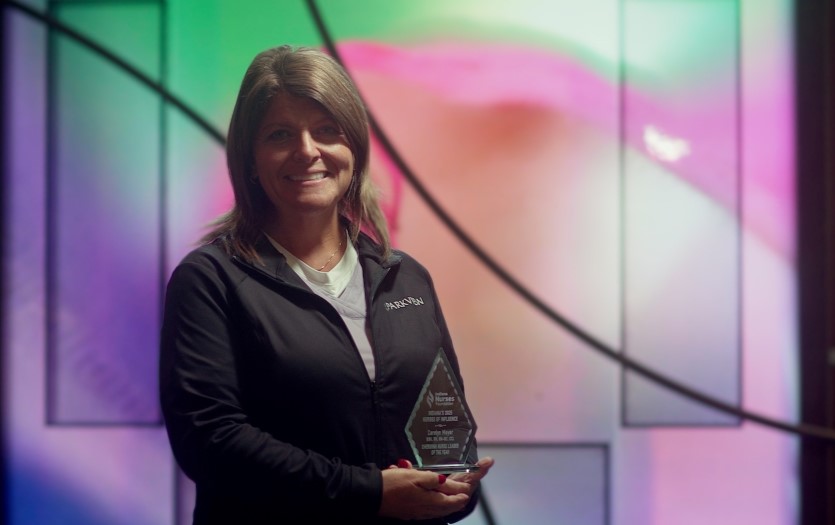
This post was written by Jessica Pater, MS, PhD, manager and research scientist, Health Services and Informatics Research, Parkview Mirro Center for Research and Innovation, and Brandon McDaniel, PhD, research scientist, Parkview Mirro Center for Research and Innovation.
Detoxes have become quite popular. We detox from caffeine, alcohol, carbohydrates, chocolate, etc. You name it; there is a program or a process for removing these things from our lives for brief episodes or extended periods. But what about technology? Digital detoxes are becoming more prevalent. From teenagers to grandparents, people voluntarily put down their digital devices or log out of online activities and live a less digital life for whatever amount of time feels comfortable for them. [1] Detoxing from technology is not new. Past research has explored detoxes from technologies like the telephone, TV, and even movie theatres. [2] With our reliance on technology at an all-time high, it’s understandable that we feel overwhelmed by the amount of technology in our lives. A 2021 U.S. survey found that 97% of people now own a cellphone and 15% of adults only access the internet through their device. [3] As a result, there is a driving force behind a digital detox, with many utilizing this process to take control of their technology use.
The reasons behind a digital detox
There are many reasons that might drive someone to disconnect from technology. Maybe you’ve experienced cyberbullying, or feel overwhelmed by the content in your digital communities, or you simply need to take a break. Mental health is one of the most common reasons people are re-examining their technology use. People are starting to evaluate how their technology use makes them feel. While it can make you feel happy, supported and connected, it can also make you feel stressed, anxious, depressed or other negative emotions. A 2019 study found that excessive smartphone use was a predictor of depression as well as depression being for smartphone overuse. [4] Many other studies point to higher levels of anxiety, self-doubt, and other severe mental health components related to prolonged technology use or misuse. Another reason could be related to technoference, which is the interruption of interpersonal relationships caused by your use of digital devices. [5] Parkview currently has an NIH grant led by Dr. Brandon McDaniel that examines the phone habits of parents of infants and the development of programming that encourages healthy digital habits for families. [6] There will be more to share about this in the future as research is currently underway.
The effectiveness of a digital detox
In the last five years, there’s been an increase in research exploring this topic. From giving up all technology to detoxing only from social media, studies have examined the impacts of hitting pause on use from one day to an entire month. [7] The results are mixed. While some studies have shown an increase in negative affect and a decrease in feelings of connectedness, an overwhelming number of studies have shown that digital detoxes positively impact mental health, sleep and life satisfaction. While the research is not yet conclusive on the effectiveness of digital detoxes, it does suggest that they show hope when positively impacting aspects of depressive symptoms or your overall time spent using technology. [7]
How to get started
There are certain things you can do to begin your digital detox. Here are a few strategies that might help you be more successful while on your detox journey: [8]
- Make a plan. Answering these questions can help you jump-start your detox efforts. What goals are you trying to achieve with a detox? Are you trying to use technology less, or do you want to eliminate it? What is the duration of your detox? Is it a weekend, a week or a month? What are the steps you want to take to achieve these goals?
- Communicate your plan and find support. Tell people about your plan and what is inspiring it. Ask yourself, do you need help from your family, friends and colleagues? How can your community support you to be successful in your digital detox?
- Think about physical access as well. To help with your detox time, consider moving your phone or technology to another room or putting it out of sight to reduce temptations to use them.
- Reward yourself for success. Look at your planned goals. Set up incremental check-ins and reward yourself for sticking to your plan!
A little goes a long way
It’s also important to remember that digital detoxes don’t have to be all or nothing. We can do things in our everyday lives to reduce our digital interactions. Some of those include: [9]
- Take breaks throughout the day where there is no technology. This could include screen-free mealtimes, outdoor play/activities and restricting technology before bedtime.
- Schedule times when you aren’t allowed to use technology — create calendar invites or alarms that prompt you to step away from it. Also, get your family involved. You can create screen-free zones in your home or specific times that must be screen-free, like during meals.
- Adjust your phone settings to help you reduce digital interactions. For example, turn off notifications, use apps to monitor your use, and delete applications.
Sources
[1] Syvertsen, T., & Enli, G. (2020). Digital detox: Media resistance and the promise of authenticity. Convergence, 26(5-6), 1269-1283.
[2] Syvertsen T (2017) Media Resistance: Protest, Dislike, Abstention. Cham: Palgrave.
[3] Perrin, A. (2021). Mobile technology and home broadband 2021. Pew Research Center.
[4] Stankovic, M., Nešic, M., Cicevic, S., & Shi, Z. (2021). Association of smartphone use with depression, anxiety, stress, sleep quality, and internet addiction. Empirical evidence from a smartphone application. Personality and individual differences, 168, 110342.
[5] McDaniel, B. T., & Radesky, J. S. (2018). Technoference: Parent distraction with technology and associations with child behavior problems. Child development, 89(1), 100-109.
[6] Parkview’s Brandon McDaniel awarded research grant from National Institutes of Health
[7] Radtke, T., Apel, T., Schenkel, K., Keller, J., & von Lindern, E. (2022). Digital detox: An effective solution in the smartphone era? A systematic literature review. Mobile Media & Communication, 10(2), 190-215.



